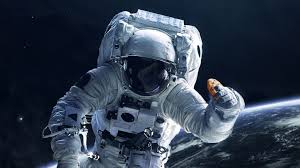
Breaking News
 US Lawmakers Shmooze with Zelensky at Munich Security Conference...
US Lawmakers Shmooze with Zelensky at Munich Security Conference...
 Scientists have plan to save the world by chopping down boreal forest...
Scientists have plan to save the world by chopping down boreal forest...
 New Coalition Aims To Ban Vaccine Mandates Across US
New Coalition Aims To Ban Vaccine Mandates Across US
Top Tech News
 New Spray-on Powder Instantly Seals Life-Threatening Wounds in Battle or During Disasters
New Spray-on Powder Instantly Seals Life-Threatening Wounds in Battle or During Disasters
 AI-enhanced stethoscope excels at listening to our hearts
AI-enhanced stethoscope excels at listening to our hearts
 Flame-treated sunscreen keeps the zinc but cuts the smeary white look
Flame-treated sunscreen keeps the zinc but cuts the smeary white look
 Display hub adds three more screens powered through single USB port
Display hub adds three more screens powered through single USB port
 We Finally Know How Fast The Tesla Semi Will Charge: Very, Very Fast
We Finally Know How Fast The Tesla Semi Will Charge: Very, Very Fast
 Drone-launching underwater drone hitches a ride on ship and sub hulls
Drone-launching underwater drone hitches a ride on ship and sub hulls
 Humanoid Robots Get "Brains" As Dual-Use Fears Mount
Humanoid Robots Get "Brains" As Dual-Use Fears Mount
 SpaceX Authorized to Increase High Speed Internet Download Speeds 5X Through 2026
SpaceX Authorized to Increase High Speed Internet Download Speeds 5X Through 2026
 Space AI is the Key to the Technological Singularity
Space AI is the Key to the Technological Singularity
 Velocitor X-1 eVTOL could be beating the traffic in just a year
Velocitor X-1 eVTOL could be beating the traffic in just a year
Astronauts Are Growing Microbes in Space to Help Us Mine Asteroids

If humans ever want to establish a base on the Moon, Mars, or in deep space, they may need to mine local rocks to support themselves. Now a team of scientists is taking a first step toward finding out whether rock-chowing bacteria can lend a hand.
On Tuesday, astronauts on the International Space Station fired up a series of miniaturized reactors that'll allow them to grow specialized bacteria capable of extracting resources from rocks here on Earth. The experiment, called Biorock, seeks to learn whether the microbes' abilities are altered in low gravity conditions—and ultimately, whether these tiny miners can help support a future off-Earth base.
On Earth, microbes are already used in so-called "biomining" applications; helping humans to extract metals like copper, iron, and gold from rocks or mining waste.

 Going the Way of the Denarius
Going the Way of the Denarius

